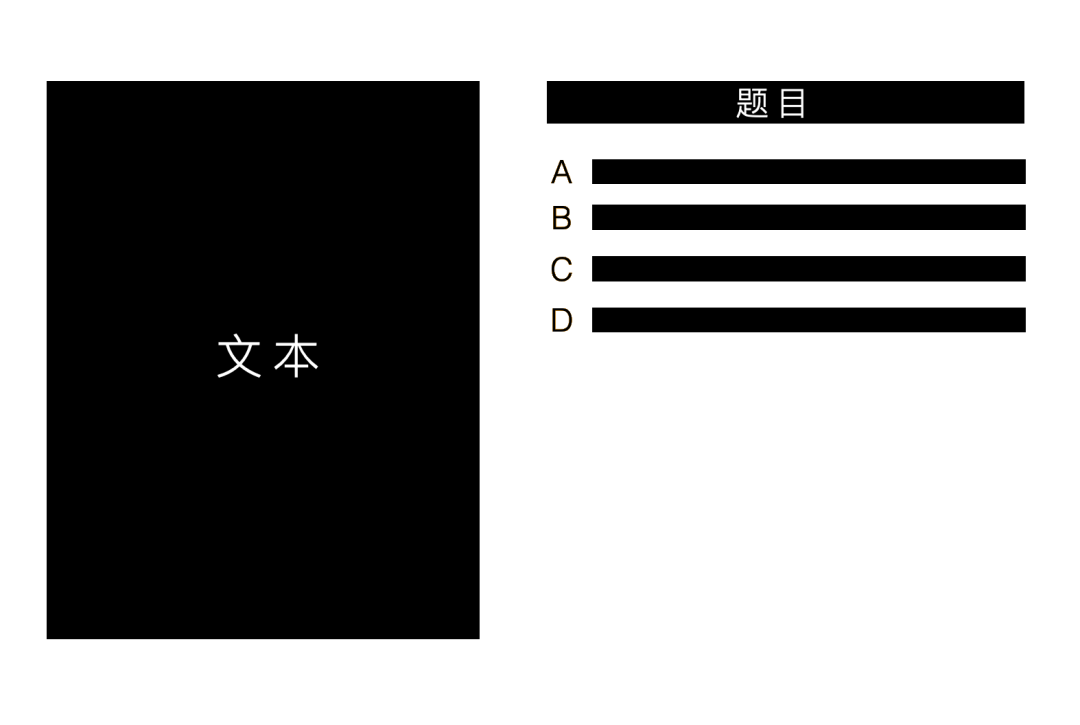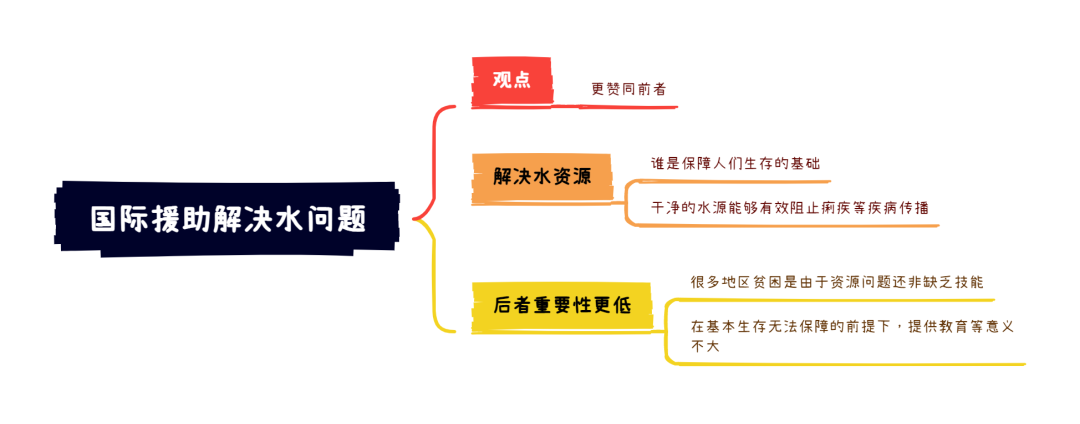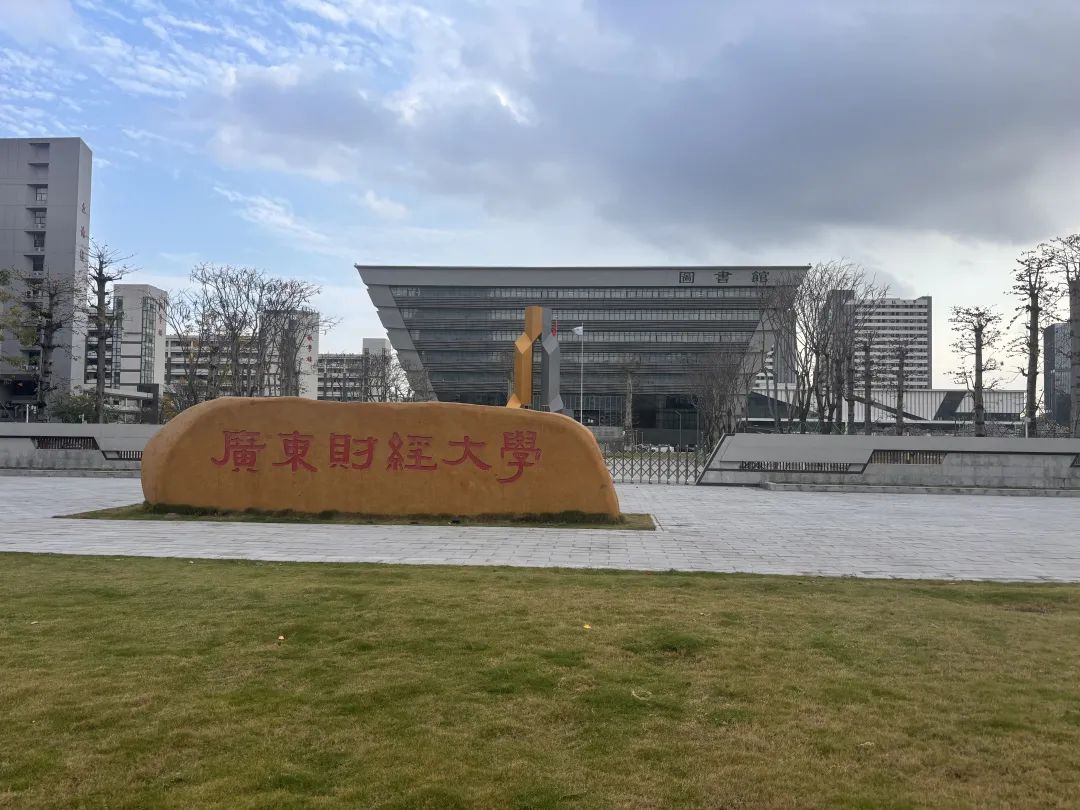先总的说下阅读这件事情,
不管是泛读还是精读,本质上都是利用了篇章展开过程中重复的特点。
泛读的时候为什么有些内容能快速过,是因为知道后面的内容会是前面内容的重复,既然没有什么新信息,或者没有预判出来这部分内容没有自己感兴趣的信息,自然就不用重点读了。
然后我们聚焦到GRE 语文部分的阅读和填空来说下。
阅读和填空的本质考察是类似的,说虚了是考生的信息处理能力。
具体来说,就是出题方给了你一段信息,根据这段信息,出题方会出几个题目,以此来检验你是不是读懂了这个信息,以此来确保你未来能读懂在学习和工作中遇到的类似信息。
来具体信息给出和考察的形式上,阅读和填空略有不同
阅读的呈现形式如下

这种形式是我们相对比较熟悉的,要做的就是用题目去文本里面找信息,最后使得
题目 + 正确选项 = 文本
填空的呈现形式如下

既然考察的也是信息处理能力,所以方式也是类似的,只是填空是用空格去定位,使得
空格 + 一部分文本 = 另一部分文本
而上面两个公式的 “=”, 本质上都是重复。
所以不管对于阅读还是填空,如果能高效的找出来重复(不管是同义还是反义,本质上都是内容的重复),做题的速度和精度都会提高。
因此,我们备考时候大多数的练习都是在提高自己识别重复的能力。同时也是在积累一些自己之前没能掌握的重复(这就是所谓的在提高对于考试的了解,或者说“题感”)。
所以在备考GRE 时候,对于单词的记忆是最基本的词的重复,然后有词和句子之间的重复,有句子和句子之间的重复,有句子和篇章的重复,还有篇章和篇章之间的重复。
当然以上的这一段,我只是想说,GRE 考试中单词只是最基础的前提,只是当我们最基础前提没有满足的时候,会感觉这个考试就是单词,但是,当你满足了这个基本前提以后。你再去做题,你就会感受到这种重复了。
下面让我们来一起感受下这种重复在阅读和填空中实现。
阅读
选择了LAB 330+ 真题阅读里面的第8篇
According to Hill and Spicer, the term “nation-state” is a misnomer, since the ideal model of a monolingual, culturally homogeneous state has never existed, not even among Europeans, who invented the nation-state concept and introduced it to the rest of the world. Modern European states, they argue, emerged after the Renaissance through the rise of nations (i.e., specific ethnic groups) to positions of political and economic dominance over a number of other ethnic groups within the bounded political territories. The term “nation-state”, Hill and Spicer argue, obscures the internal cultural and linguistic diversity of states that could more accurately be called “conquest states.” The resurgence of multiple ethnic groups within a single state, Hill says, is not “potentially threating to the sovereign jurisdiction of the state,” as Urban and Sherzer suggest; rather, the assertion of cultural differences threatens to reveal ethnocentric beliefs and practices upon which conquest states were historically founded and thus to open up the possibility for a “nations-state” in which conquered ethnic groups enjoy equal rights with the conquering ethnic group but do not face the threat of persecution or cultural assimilation into the dominant ethnic group.
先看下文本部分。重复的内容用一样的颜色标示;
中文为读者内心独白
According to Hill and Spicer, the term “nation-state” is a misnomer, since the ideal model of a monolingual, culturally homogeneous state has never existed, not even among Europeans, who invented the nation-state concept and introduced it to the rest of the world.[通过第一句可以知道,要谈的是 “民族国家”这个名字取错了,因为不存在这样的国家] Modern European states, they argue, emerged after the Renaissance through the rise of nations (i.e., specific ethnic groups) to positions of political and economic dominance over a number of other ethnic groups within the bounded political territories.(这个颜色表示,和前面nation-state 的概念相反,欧洲是多民族的国家) The term “nation-state”, Hill and Spicer argue, obscures the internal cultural and linguistic diversity of states that could more accurately be called “conquest states.” 引入了一个新的概念,“征服国家” The resurgence of multiple ethnic groups within a single state, Hill says, is not “potentially threating to the sovereign jurisdiction of the state,” as Urban and Sherzer suggest; 承认一个国家有不同民族,不会威胁国家主权,那么为什么还要说是“民族国家”呢? rather, the assertion of cultural differences threatens to reveal ethnocentric beliefs and practices upon which conquest states were historically founded 说“多民族”,会揭露主要民族的特权 and thus to open up the possibility for a “nations-state” 导致主要民族可能因为社会压力,不得不放弃一些特权,成立多民族国家 in which conquered ethnic groups enjoy equal rights with the conquering ethnic group but do not face the threat of persecution or cultural assimilation into the dominant ethnic group.这样使得曾经的非主要民族也能共享一些权利了
颜色代表重复,所以从颜色来看,大体文章意思就是
第一层: nation state 名字错了
第二层:说ta错的原因:创造这个名字的欧洲,自己也是多民族state
第三层:这种多个民族的国家,准确的说,应该叫conquest state
第四层:那么为什么要不承认是多民族的国家呢?原因不是会threaten 了国家主权,而是主流民族怕失去特权
这样这个文本就读完了,因为这个阅读只有一段文字,所以通过找每一个句子间的重复关系,我们更能明白后面的句子和前面的句子间的关系。换句话说,更能读进去,读明白。
下面来看下题目, 题目本质也是对于文本的重复,这里不细分析题目了,就说下正确答案是怎么重复的。
1. The primary purpose of the passage is to
问文章主旨,文章主要谈的就是nation state 这个说法不对,应该叫什么,以及为什么会有这个名字。看下选项
A. discuss issues relating to a form of political organization by raising doubts about the terminology used to refer to it 这个答案就是对于我们文本第一句的重复,所以选它
B. trace changes in a form of political organization by examining the evolution of the terminology used to refer to
C. justify the continued use of an established term for an evolving form of political organization
D. question the accuracy of a new term for a form of political organization 这个答案容易误选,注意new term 是 conquest state,所以,不是文章主旨
E. compare two terms for a form of political organization
2. The author of the passage quotes Urban and Sherzer most probably in order to
目的题,说U&S 是为了干嘛,他们在原文说了为什么要不承认多民族的特性,主要是怕threaten 了特权
A. introduce a discussion of the legal ramifications of expanding the nation- state concept
B. summarize a claim about one possible effect of asserting cultural differences within a state 就是对原文threaten 部分内容的同义重复,选B
C. shift the focus of discussion from internal threats that states face to external threats that they face
D. point out similarities between the threats to states seen by Urban and Sherzer and those seen by Hill
E. describe one way an ethnocentric practice has affected attempts to assert cultural differences within a state
因为不管是主旨还是细节题都是对于原文内容的重复,所以这种重复的判断和积累一定是对于不同的阅读题目都适用的。
填空真题里面也有提misnomer 的,就用这题来看下填空里面的重复
The scientist (i)__负___ that the now familiar term “global warming” is (ii)__负___, arguing that the atmospheric buildup of long-lived greenhouse gases is setting in motion centuries of shifts in climate patterns, coastlines, water resources, and ecosystems—hardly (iii)_____ one would describe with a gentle word like “warming”.
Blank (i) A. denied B. complained C. doubted
Blank (ii) D. an exaggeration E. a cliché F. a misnomer
Blank (iii) G. a transformation H. an enigma I. a signal
填空,我们说是用空格直接去定位原文,从头开始
第一空,问我们scientist 发出了什么动作,目前不知道
The scientist (i)_____ that
第二空,问了我们 global warming 这个概念怎么样,同样,读到第二空时候没有给我们信息
The scientist (i)_____ that the now familiar term “global warming” is (ii)_____,
接着往后,看到 arguing,这 开始是一个分词结构和主句的重复,就是说arguing 这个动作是scientist 发出的,所以理论上第一空scientist干了什么,我们可以有答案了。
scientist 觉得(arguing)grenhouse gases 的积聚 正在引起(setting in motion) 气候结构、海岸线、水资源和生态系统,几个世纪的改变。
到目前为止只是谈了arguing 的具体内容,没看出来scientist态度。
所以继续看破折号后面,说这个几个世纪的改变,不是(hardly)一种什么(第三空),人们会有warming 这样缓和的词来描述。
读到这里最早出现的其实是第三空,因为有个直接的重复,说 一种shifts 不是另外一种什么(第三空),当然就是不是另外一种shift,所以选G, transformation
.... shifts in climate patterns, coastlines, water resources, and ecosystems—hardly (iii)_____ one would describe with a gentle word like “warming”.
从hardly 可以看出来,最后一句的态度给的是很明确的,就是,warming 这个词显得太gentle了,所以第一空,scientist 显然是负向 complain 的态度,另外第二空warming 这个词,就是用的不恰当(misnomer)了。
所以填空的做法也是一样的,通过空格去定位,就是读出来现在空格需要什么信息,然后去非空部分找到对应的信息。而通过找重复的做题和分析过程,可以帮助我们更高效的在做题的时候找到空格的对应。












